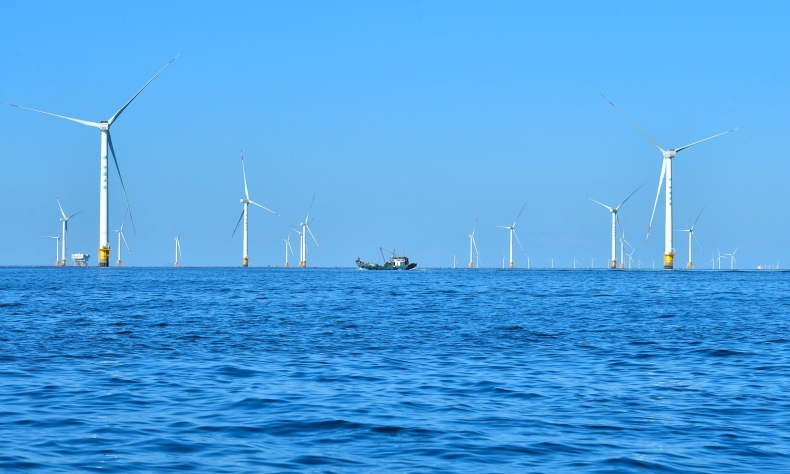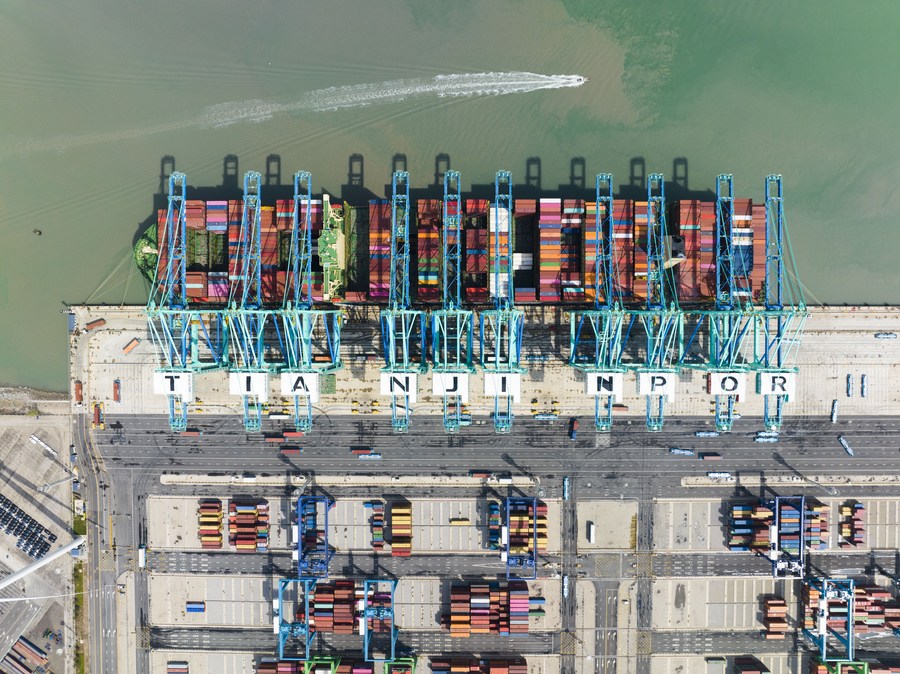Guillaume Bernard: Sino-French Collaboration Goes Further in New Energy Field

The global crisis of climate change is a topic where all the governments can collaborate together. There is a lot of collaboration to create in this field. But we need to recreate the dynamic.
Editor’s Note: Guillaume Bernard is the chairman of the China Committee of French Foreign Trade Advisors (CCE). He has been living in China for more than a decade and is managing a company specializing in industrial automation within the energy and environmental sectors.
In an interview with China Focus, he shared his insights into Sino-French cooperation in new energy and how to shoulder the collective responsibility of mitigating the harmful effects of climate change. The excerpts of the interview are as follows.
China Focus: China has pledged to reach peak carbon by 2030 and carbon neutrality by 2060. What do you think about this objective?
Guillaume Bernard: I’m not a scientist able to tell you if it’s realistic or not. One thing for sure is it’s mandatory. And it’s very important that China took the commitment to go there. We need to do everything we can to go there as soon as possible. It’s absolutely critical.
On the first side, we’re going to have to adapt to climate change. But every decision we do today is going to have an impact on how our children are going to live in the planet. So it’s urgent that we do action.
There are two types of actions, efficiency and innovation. Efficiency is about to do the same as we do today with less energy. For instance, today we’re using a lot of transportation. Is it necessary? We use a lot of consumption. Is it really necessary consumption? We need to use energy better today to make sure that in 30 years, in 50 years, the world is using less energy for the same as we do today.
The second part is innovation, for example, in windmills, in solar panels, in efficiency of technology and efficiency for building automation. One of the solutions I mentioned before is nuclear energy. There are a lot of things to do with nuclear energy, especially to have a small nuclear power plant that can heat and deliver electricity to many small households when it’s remote.

China Focus: How can countries shoulder the collective responsibility of mitigating the harmful effects of climate change?
Guillaume Bernard: It’s a global responsibility for everybody. A country like France is absolutely responsible to move ahead and to use less energy, to use less energy for what we do today. Western countries have already a very good wealth and need to change the habits. We need to change our habits of life to try to maintain as much as possible the comfort because it’s useless to tell people to give up your comfort. But we need to make sure that we don’t waste energy because this way of life will be very important.
On the other side, there are many countries that are, for example, in Southeast Asia that need drinking water. People are dying, kids are dying because they don’t have drinking water. These countries, they need to burn coal in order to provide drinking water to the people. It’s absolutely necessary for these countries. In France, we put drinking water in a toilet. How can we say to people in Southeast Asia, don’t burn coal, don’t have drinking water? It’s very selfish.
So, it’s a paradox sometimes. We need to use less energy in some countries, but we need to use more energy in some other countries. And we need to make that compatible with a global responsibility of reducing the global carbon footprint.
China, for instance, has a big responsibility in emitting, but China is manufacturing for the world. When a French guy buys a toy for Christmas, the CO2 is emitted in China. But the toy is used in France. So we have also the responsibility in Western countries by using the carbon emission of others. The problem and the challenge are how we work together.
China Focus: What does the future hold for Sino-France new energy cooperation?
Guillaume Bernard: There are a lot of things to recreate now. The global crisis of climate change is still not yet, today, in the top one priority of all the governments.
So, this is a topic where all the governments can collaborate together. France has a lot of expertise in the nuclear industry. China has a lot of expertise, a lot of research on development. There is a lot of collaboration to create in this field, for instance. But, there is also collaboration for artificial intelligence, for the field of waste treatment, all these fields are fields where we need to protect the climate and the biodiversity. This is a typical topic where we need to collaborate more.
Europe in general, France in particular, and China have lots of topics. But we need to recreate the dynamic.
 Facebook
Facebook
 Twitter
Twitter
 Linkedin
Linkedin
 Google +
Google +











